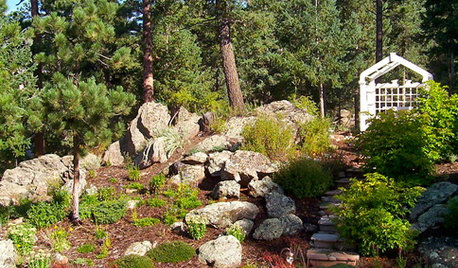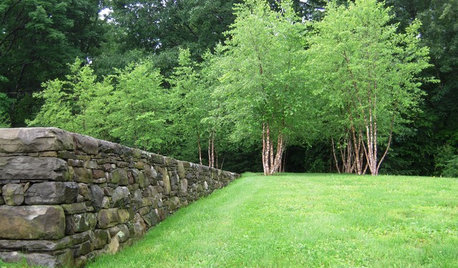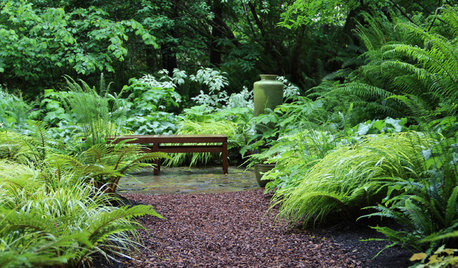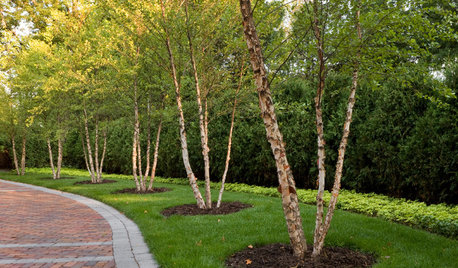pine bark fines for amending soil
joeschmoe80
11 years ago
Related Stories

GARDENING GUIDESGrow a Beautiful Garden in Alkaline Soil
Got alkaline soil? Learn how to manage it and the many beautiful plants that will thrive in this ‘sweet’ soil
Full Story
GARDENING GUIDESGardening Solutions for Heavy Clay Soils
What’s a gardener to do with soil that’s easily compacted and has poor drainage? Find out here
Full Story
GARDENING GUIDESHow to Pick a Mulch — and Why Your Soil Wants It
There's more to topdressing than shredded wood. Learn about mulch types, costs and design considerations here
Full Story
GARDENING GUIDESHow to Stop Worrying and Start Loving Clay Soil
Clay has many more benefits than you might imagine
Full Story
GARDENING GUIDESHave Acidic Soil in Your Yard? Learn to Love Gardening Anyway
Look to acid-loving plants, like conifers and rhododendrons, to help your low-pH garden thrive
Full Story
LANDSCAPE DESIGNFlood-Tolerant Native Trees for Soggy Soil
Swampy sites, floodplains, even standing water ... if you've got a soggy landscape, these trees are for you
Full Story
GARDENING GUIDES10 Solutions for Soggy Soil
If a too-wet garden is raining on your parade, try these water-loving plants and other ideas for handling all of that H2O
Full Story
GARDENING GUIDESGarden Myths to Debunk as You Dig This Fall and Rest Over Winter
Termites hate wood mulch, don’t amend soil for trees, avoid gravel in planters — and more nuggets of garden wisdom
Full Story
LANDSCAPE DESIGNGreat Design Plant: River Birch
Pick this rugged native tree for its intriguing peeling bark, soil adaptability or leaves that bring dappled shade to a garden
Full Story
GARDENING GUIDESNew Ways to Think About All That Mulch in the Garden
Before you go making a mountain out of a mulch hill, learn the facts about what your plants and soil really want
Full Story







kevinitis
joeschmoe80Original Author
Related Professionals
Towson Landscape Architects & Landscape Designers · Framingham Landscape Contractors · Hicksville Landscape Contractors · Madera Landscape Contractors · Miller Place Landscape Contractors · Oviedo Landscape Contractors · View Park-Windsor Hills Landscape Contractors · Welby Landscape Contractors · Palos Hills Landscape Contractors · Hawaiian Gardens Landscape Contractors · Beavercreek Decks, Patios & Outdoor Enclosures · Cape Coral Decks, Patios & Outdoor Enclosures · Diamond Bar Decks, Patios & Outdoor Enclosures · Fort Myers Decks, Patios & Outdoor Enclosures · Fresno Decks, Patios & Outdoor Enclosuresluckygal
tsugajunkie z5 SE WI ♱
allen456
Kimmsr
joeschmoe80Original Author
Kimmsr
Ohiofem 6a/5b Southwest Ohio
TheMasterGardener1